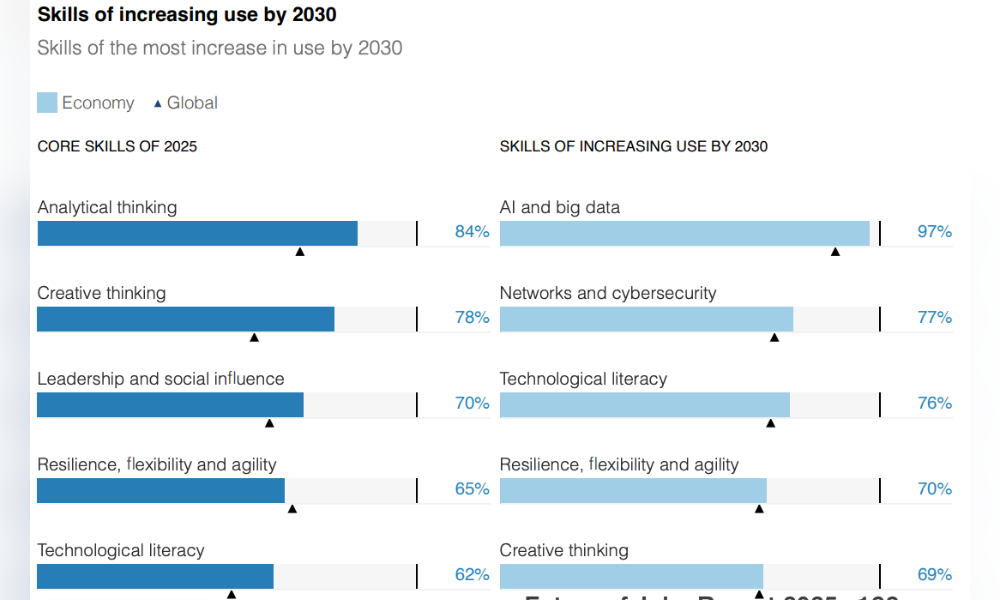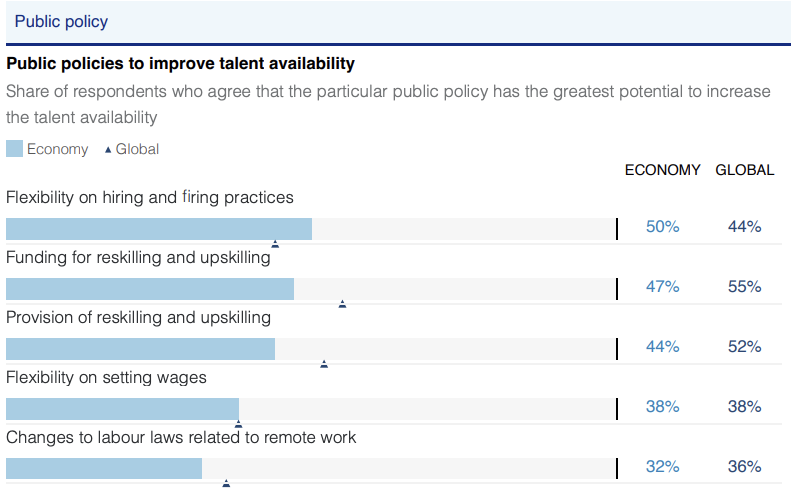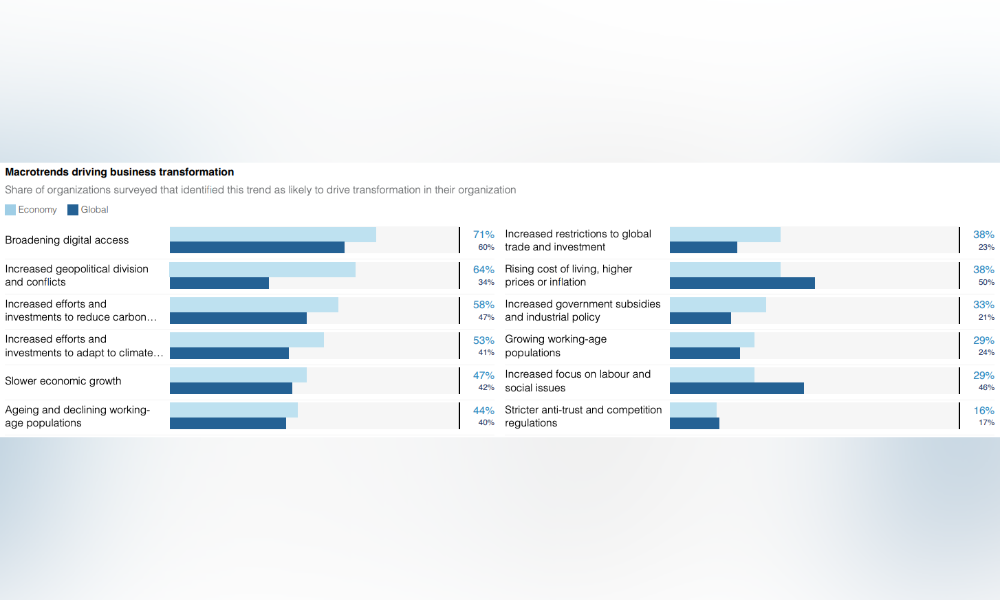
New report reveals more than half of employers believe staff need to be upskilled

The skills gap in the labour market has emerged as the top barrier for Singaporean employers when it comes to business transformation, according to a new report from the World Economic Forum (WEF).
The WEF's Future of Jobs Report found that 60% of Singaporean employers cited the skills gap as a major barrier, just slightly below the average of 63% globally.
"Similar to global and regional peers, firms in Singapore expect skills gaps, regulatory barriers, and organisational resistance to hinder business transformation," the report read.
According to the report, 84% of employers consider analytical training as a core skill of 2025, while AI and big data will be of increasing use by 2030.

With changing skills demands in the coming years, 32% of employers believe that their staff would need to be upskilled in their current role, while 24% said their staff would need to be upskilled and then redeployed to other roles.
To help them improve talent availability, half of Singaporean employers called for flexibility on hiring and firing practices.
More than four in 10 also called for funding (47%) and provision (44%) for reskilling and upskilling.
"While a skills-first approach is perceived as having the potential to expand Singapore's talent pool, 58% of employers expect to continue prioritising university degrees in hiring decisions, which is higher than the 43% global average," the report added.

Meanwhile, the report found that broadening digital access and increased geopolitical tensions are the top macrotrends that employers believe will drive business transformation in the next five years.
"In Singapore, 64% of employers operating in the country expect their business to be impacted by geoeconomic fragmentation, twice the global average," the report read.

Other identified megatrends include the ageing and declining working-age populations (44%), growing working-age populations, as well as increased focus on labour and social issues.